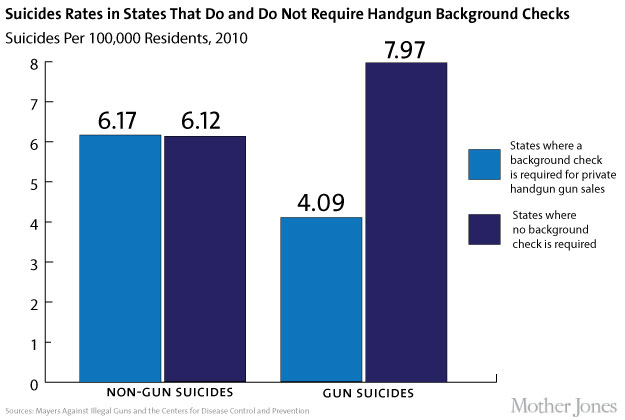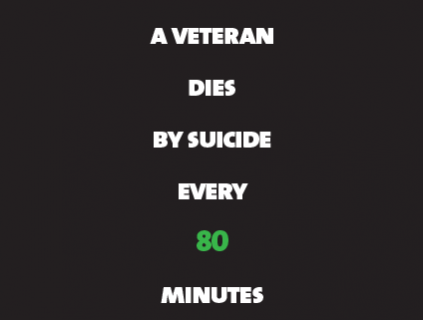Gun enthusiasts haven’t taken kindly to our story and map this week showing that gun suicides outpace traffic fatalities in many states. They’ve responded in droves with a common NRA talking point, which is that people who want to kill themselves will do it with or without guns. In fact, however, research shows that that assumption doesn’t hold water.
US military brass have been spending a lot of time and money looking at how best to reduce the suicide rate among US troops, which has skyrocketed in recent years. They have concluded that it’s false to assume that people intent on killing themselves will find a way to do it even if they can’t get a gun. In a report to Congress in July, the Military Suicide Research Consortium noted that “Studies demonstrate that method substitution is rare.”
That’s why simple things that can delay access to a gun, like mandatory background checks for all handgun purchases—including private sales—like those that would be required by a new bill recently passed by a Senate committee, can make a big difference in preventing suicide. States with such a requirement have a gun suicide rate 50 percent lower than states that don’t, even when their non-gun suicide rates are about the same.

As injury-prevention researchers at Harvard have said, “means matter.”
Note: All suicidal thoughts, behaviors, and attempts should be taken seriously. Get help 24/7 by calling the National Suicide Prevention LifeLine at 1-800-273-TALK. Help is also available online at www.suicidepreventionlifeline.org. Trained consultants will provide free and confidential crisis counseling to anyone in need.













